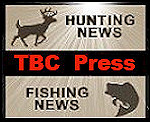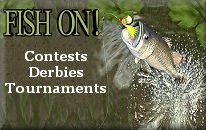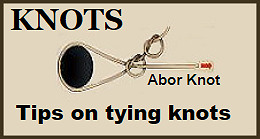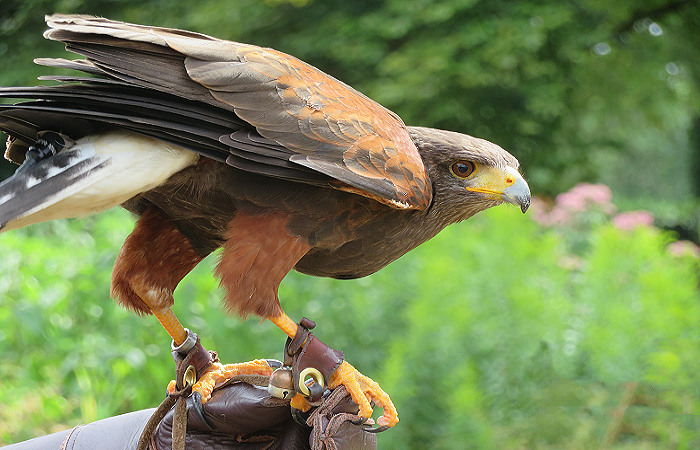The Backcountry Press
The country's premier daily hunting, fishing & outdoor news in the USA, Canada and more. Read whats happening in your neck of the woods & beyond. Choose your language above and read our news in English, Deutsche, Espanol, Francese, Irish or Italiano
The Backcountry Outdoor News reports the latest hunting and, fishing news along with fishing derbies and tournaments
from:
| ||||||
| ||||||
|
Whether an event is for freshwater, saltwater, open water or ice fishing, they are listed in our directory.
HUNTING NEWS CATEGORIES
© 2010 Backcountry Press Outdoor News - All Rights Reserved Website Design by:
Connect With Us
 | ||||
Do You Really Want To Be A Falconer?
Submitted by: Backcountry Press Outdoor News
Disclaimer: The views expressed on this site are that of the authors and not necessarily that of TBC Press
Falconry is the art and sport of using trained raptors (birds of prey) to hunt game. The sport requires long hours, constant devotion, finesse, subtlety, and skill. The falconer must train a bird of prey to fly free, hunt under the guidance of a human being and then accept a return to captivity. Falconer’s may use different species of raptors to hunt different types of game.
There are three common questions asked by people inquiring about falconry:
* What are the regulations against keeping a hawk?
* Where and how do you obtain birds for use in falconry?
* What are the details on how to become a falconer?
People that ask these questions are usually those who have recently read an article on falconry in a newspaper or a popular magazine. Some of these people may actually have seen a trained bird in flight.
Few really know any falconers, however, and almost none have any idea of the time, effort, money and facilities the sport of falconry demands. In the United States, falconry is legal in all states except Hawaii. Falconry is strictly regulated by the U.S. Fish and Wildlife Service.
Falconry is not an "overnight" achievement. Becoming a Master falconer takes at least seven years. The beginner must learn about the various gaming birds, their stages of life, characteristics, prey, care, feeding, and suitability for the falconer and the hunting environment. Learning about proper housing for the birds and knowing how to use the equipment also is necessary. A falconer must know the rules and regulations that affect the sport and the laws that apply to birds of prey.
Falconry is the only sport that uses a trained wild creature. Falcons, hawks, eagles, and owls are essential elements of our wildlife. The competent falconer takes care to follow sound conservation principles in the pursuit of the sport.
Because all raptors are protected by state, federal and international law, all potential falconers must obtain necessary permits before obtaining a hawk or practicing falconry. This includes taking a written falconry exam, inspection of facilities and being sponsored by an experienced falconer. Falconers are required to follow Nebraska’s game laws, and are not allowed to hunt out-of-season or hunt protected species.
Responsible falconers and falconry organizations almost always try to discourage newcomers to the sport, particularly when their interest is kindled in this manner. Newspaper and magazine articles on falconry are frequently inaccurate, and they tend to stress the sensational aspects of the sport. For example, success in taking game may be grossly exaggerated, and little emphasis may be given the fact that the falconer’s chief reward is the beauty of the flight itself, whether successful or not. Flight demonstrations themselves may make falconry look easy, but they cannot possibly give any idea of the long hours and hard work the trained bird represents.
Of all sports in America, falconry is the only one, which uses a trained wild animal. Falcons, hawks, eagles, and owls are essential elements of our wildlife. The competent falconer recognizes this and takes care to follow sound conservation principles in pursuit of the sport. Because of this, the falconer’s activities represent no threat to the raptor species. However, the casual and uninformed novice, by attempting to satisfy a passing fancy, may do them harm in many ways and cast discredit upon falconry itself. Therefore, before they will aid anyone newly attracted to falconry, most falconers will require proof of serious, dedicated interest in the sport. They feel that anything less is not worth bothering with, and that birds which fall into the hands of those who are not deeply motivated should be restored to the wild without delay.
Serious dedication is normally demonstrated by reading anything and everything available on falcons and falconry, by a sincere interest in all aspects of wildlife and the outdoors, and by a persistent effort to learn the fundamentals of the sport, all before any attempt to obtain a bird. Most successful falconers began in this manner, and today’s newcomer must expect a similar period of apprenticeship, leading to a reasonable expectation that a bird may be safely entrusted to his or her care, before the newcomer can expect any help. If your are unwilling to do this, you should not try to become a falconer. However, if you are convinced that your interest in falconry is more than superficial and you are willing to undertake the necessary study before you acquire a bird, you must then be prepared to fulfill certain additional minimum requirements.
You must have sufficient time and patience to devote to training and flying a bird. The trained falcon requires an absolute minimum of one hour per day, 365 days a year. A bird in training requires substantially more time. Neither can be hung up and forgotten, like a hunting rifle, when not in use. If this time is not available - if school studies, employment, or family commitments interfere - it is far better never to begin.
You must have funds to obtain food and the basic materials for falconry equipment, and the time and skill to make everything he needs. A raptor requires a natural diet depending on the species. Rabbit, quail, mice and pheasant can be purchased before obtaining a raptor. At current prices, the cost can be substantial. In addition, leather, metal and lumber and the necessary tools to work with them may be expensive. These are needed for a shelter, perches, weathering blocks, leadsheds, jesses, and hoods. Other items, which must be purchased or fabricated, are swivels, falconer’s glove and bells.
You must be able to provide suitable facilities for keeping a bird in fair and foul weather. Captive hawks and falcons must be protected at all times from cats, dogs, and other predators, including humans, as well as extremes of heat and cold, wind and dampness. They should be provided a weathering place where they may be kept outdoors in good weather, winter and summer, and an opportunity to bathe. They must have a shelter perch at night and in bad weather, dry and protected from the wind. While raptors adjust well to cold weather, they suffer in the heat, and must never be left in the direct rays of the summer sun.
You must have an adequate and reasonably convenient area for flying. Casual hunters, curious passers-by, or other interference which could scare a bird, or which might cause it to be killed when straying from the sight of the falconer, will make an otherwise satisfactory area unacceptable. The permission of the landowner must always be obtained when flying on private land.
There are other requirements, but space does not permit more detail. We hope we have convinced you that the “art and practice of hawking” may not be learned overnight or in a single lesson, but only after hard and time-consuming work. Whether or not you eventually become a falconer, we hope that you will retain a friendly interest in falcons and falconry and in the conservation of our birds of prey. They need our help in eliminating needless persecution at the hands of those who know no better.
If your interested in falconry:
- Start inquiring with your state's falconry clubs. A list of club addresses can be found below. Contact them. Ask them if there are any falconers that can take you out and show you the sport.
- Other thing you can try: There is a falconry school in Vermont, you can go there to find out if you like handling raptors and get exposer, for a fee of course.
- Don't ask if there are any falconers that will sponsor you yet; the answer is "no". They need to get to know you. When you find a sponsor, then you'll need the equipment. You need to build a Hawk Mews, which could run $1000 for materials (just an example of cost involved in falconry).
For more information:
- Contact your state coordinator for more information on regulations and a falconry licensing 'packet'. Some of this may be available to look at online via your state DNR website.
- Contact your local falconry club to inquire about joining in on a meeting or hunt.
- Refer to Falconry Resources for clubs and associations
Stock Image courtesy of http://www.hawkeyefalconry.ie/index.php
# # # #












